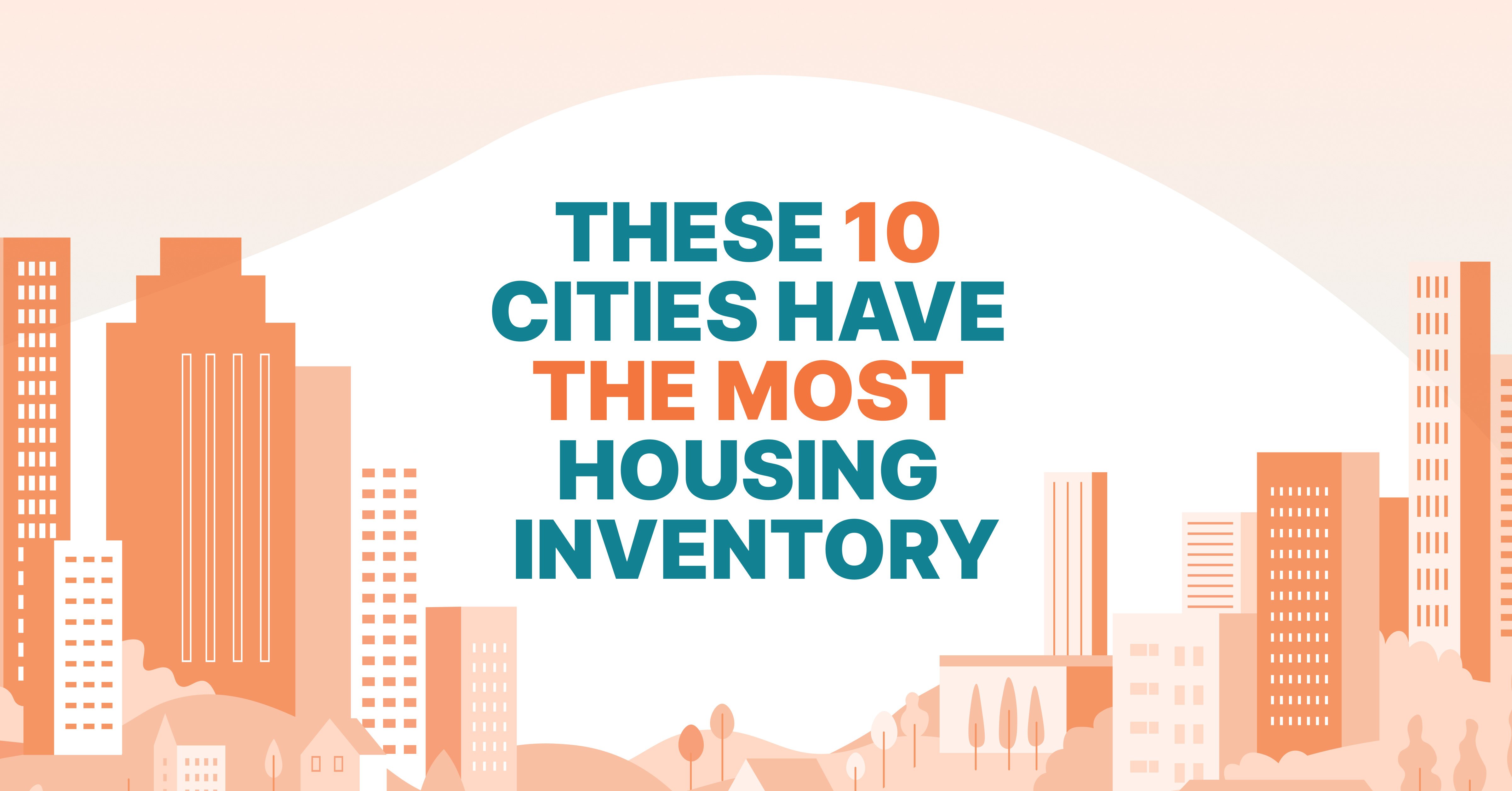Disclaimer: PropStream does not offer investing, tax, or legal advice. This article is for educational purposes only. We recommend consulting financial, tax, and legal professionals and/or doing your due diligence before investing in Las Vegas real estate.
|
Key Takeaways:
|
Las Vegas, Nevada, is a prime housing market for real estate investors. Not only is it one of the fastest-growing U.S. metros with home prices at record highs, but it also offers many potential tax benefits. Read on to learn seven ways you could save money on your next tax bill.
1. Low Property Tax Rates
Las Vegas has one of the lowest property tax rates nationwide. In 2023 (the latest data available), Clark County, of which Las Vegas is a part, had an effective property tax rate of 0.4965%. That means the median Las Vegas house valued at $400,800 would owe about $1,990 in annual property taxes.
Meanwhile, Nevada caps how much an owner’s property tax can increase year-over-year. In 2023, the cap was 3% for primary residences and 8% for investment properties. This prevents major spikes in property taxes—even if property values jump.
2. No State Income Tax
Nevada is one of the few U.S. states with no state income tax (for individuals or corporations), leaving Las Vegas real estate investors with more rental income to keep as profit.
That said, the state levies a Commerce Tax on businesses whose gross revenue exceeds $4 million in a fiscal year. However, smaller businesses below this threshold are exempt.
3. Rental Expense Deductions
Las Vegas real estate investors can deduct many property expenses from their taxable income. According to the Internal Revenue Service (IRS), these may include all of the following:
- Advertising
- Auto and travel expenses
- Cleaning and maintenance
- Commissions
- Depreciation
- Insurance
- Interest (other)
- Legal and other professional fees
- Local transportation expenses
- Management fees
- Mortgage interest paid to banks, etc.
- Points
- Rental payments
- Repairs
- Taxes
- Utilities
For example, residential structures are depreciated over 27.5 years. This means if you buy a property for $300,000 and the building value is $200,000 (with $100,000 allocated to land), you could deduct about $7,273 from your taxable income after one year ($200,000 / 27.5).
Keep in mind that all of these potential tax deductions also apply to short-term rentals (STRs), which are in high demand in Las Vegas. The city’s entertainment, casinos, and nightlife attract millions of visitors each month. In January 2025, there were 3,818,300 room nights occupied.
4. Opportunity Zone Incentives
%20(1).png?width=730&height=486&name=oppzones%20(2)%20(1).png)
Clark County, Nevada, has 45 low-income census tracts designated as “Opportunity Zones” by the U.S. Department of Treasury and the IRS. Introduced with the 2017 Tax Cuts and Jobs Act, the Qualified Opportunity Zone (QOZ) program is designed to encourage economic growth in underserved communities through tax incentives to investors.
If you invest in a QOZ through a Qualified Opportunity Fund (QOF), you may be able to:
- Defer capital gains taxes on capital gains invested in a QOF within 180 days
- Reduce capital gains taxes on any gains by 10% if the interest is held for five years
- Reduce capital gains taxes on any gains by 15% if the interest is held for seven years
- Become tax-exempt for any appreciation of the QOF investment if held for 10 years
This is a great opportunity to revitalize neighborhoods while earning significant tax breaks.
5. 1031 Exchanges
If you want to sell a Las Vegas property to buy another, consider doing a 1031 exchange. This lets you defer capital gains taxes on the sale of one investment property by reinvesting the proceeds into another like-kind property. That way, your returns can continue growing tax-free.
Keep in mind, however, that there are strict criteria for conducting a 1031 exchange. For example, you must identify the replacement property within 45 days of selling the relinquished property and complete the exchange within 180 days.
In some cases, you may be able to defer capital gains taxes indefinitely by continuously exchanging like-kind properties instead of selling.
Related: 3 Common Mistakes Investors Make When Using a 1031 Exchange
6. Energy Efficiency Tax Credits
If you house-hack a Las Vegas property and make energy-efficient upgrades, you may qualify for tax credits. For example, you could get up to $2,000 for installing a heat pump and up to $1,200 for weatherizing doors, windows, insulation, and for energy audits and electrical panels.
Plus, you could receive a credit equal to 30% of the purchase and installation costs for:
- Solar panels
- Solar water heaters
- Fuel cell property expenditures
- Small wind turbines
- Geothermal heat pumps
- Battery storage systems
As an investor, this is a win-win. Not only could you save on the upfront costs of upgrading your property, but you could also save on future utility costs by making your property more energy-efficient.
7. No Estate Taxes
Finally, Nevada doesn’t have estate or inheritance taxes. This means that if you leave your Las Vegas real estate investments to heirs, they’ll be able to keep more of their inheritance.
That said, you may still be subject to a federal estate tax if you pass away in 2025 and your estate is worth over $13,990,000 (the threshold increases each year).
What This Means for Las Vegas Real Estate Investors
As a Las Vegas real estate investor, these tax breaks can make or break a deal.
For example, a potential investment’s returns may be mediocre when factoring in all of its operating costs. However, accounting for rental expense deductions could boost the final return to a more attractive level.
Similarly, the high effective property tax rates of markets like New Jersey (2.23%) and Illinois (2.07%) could discourage you from investing there. However, with an effective tax rate of 0.49% (the third-lowest among U.S. states), Nevada can make it easier to reach your return goals.
Use PropStream to Find Tax-Advantaged Properties in Las Vegas
Ready to take advantage of Las Vegas’s tax-friendly real estate market? Find off-market opportunities and motivated sellers with PropStream.
Our database of over 160 million properties nationwide can help you narrow your search to Las Vegas properties that meet your investment criteria. Now, with PropStream Intelligence™, you can find off-market leads faster than ever by studying data like foreclosure factor, property condition, and more!
Try PropStream for 7 Days FREE!
Sign up today for a free 7-day trial and get 50 leads on us!
Frequently-Asked Questions (FAQs)
What is the property tax rate in Las Vegas?
In 2023, Las Vegas had an effective property tax rate of 0.4965%, one of the lowest in the U.S. Furthermore, property tax increases are capped annually at 8% for investment properties.
Does Nevada have a state income tax?
No, Nevada doesn’t have a state income tax, so you can keep more of your rental income and capital gains as profit.
Does Nevada have estate taxes?
No, Nevada doesn’t impose estate (or inheritance) taxes, so your heirs can inherit your real estate assets without paying state taxes on them (though they may still need to pay federal estate taxes).
Can you do 1031 exchanges in Las Vegas?
Yes, 1031 exchanges let you defer capital gains taxes on the sale of one property by reinvesting the proceeds into another like-kind property, helping you grow your portfolio tax-free.
Note: Before attempting a 1031 exchange, we recommend doing thorough research to ensure you meet the requirements and meet with a professional.
What are Opportunity Zones, and how many are in Las Vegas?
Opportunity Zones are areas where real estate investors can enjoy significant tax incentives, including deferring or reducing capital gains taxes and receiving tax exemptions on gains if the investment is held for 10 years. There are 45 Opportunity Zones in Clark County, which comprises Las Vegas and its suburbs.
What’s the biggest tax benefit of investing in Las Vegas real estate?
One of the biggest tax benefits of investing in Las Vegas real estate is the absence of state income tax. This lets investors keep more of their rental income and capital gains as profit.
Subscribe To Our Newsletter


